

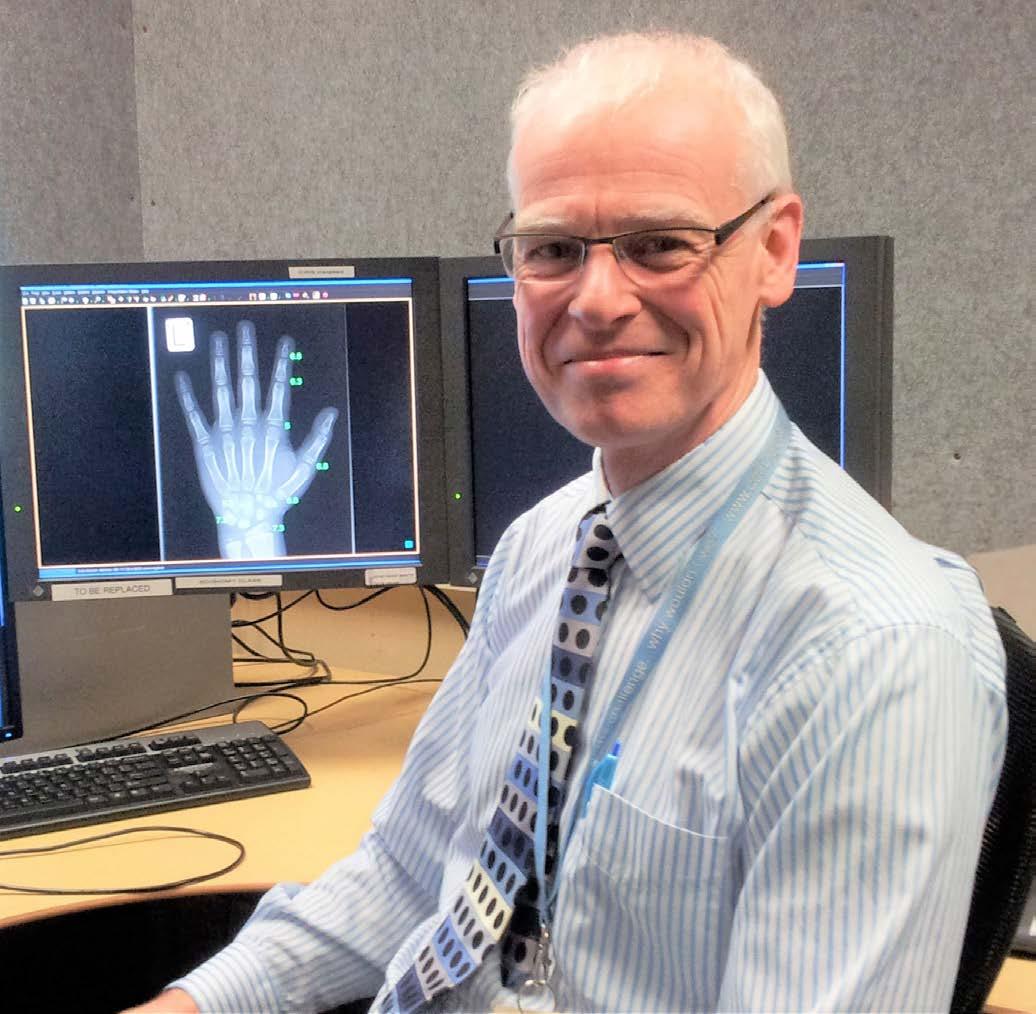
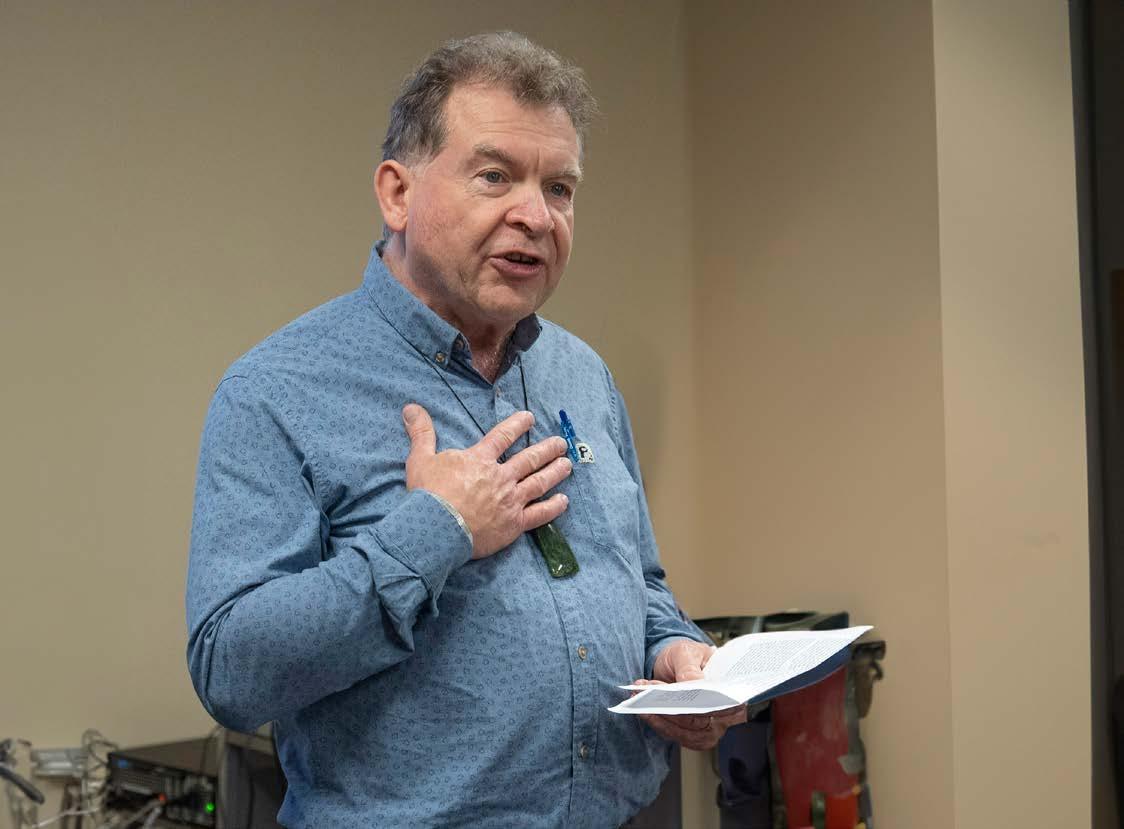


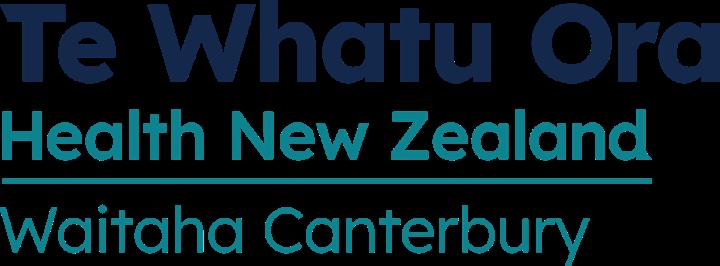
31 July 2023 Te Whatu Ora Waitaha Pānui
New Zealand Canterbury News Issue No. 51 | 31 July 2023 | 31 Hōngongoi 2023
Health
In this issue
Kupu Arataki – Introduction... pg 3-7

Quiz –Name that song (1970s edition)... pg 8
Ā mātou korero – Our people
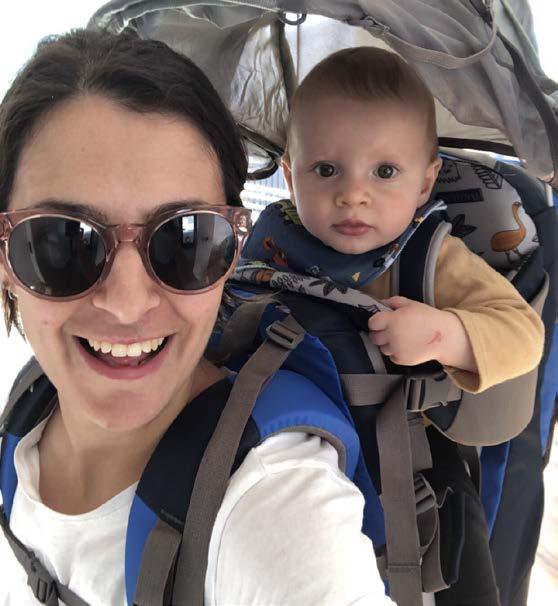
› Fascination with pathology leads to highly accomplished career... pg 9–10
› Huge advances in technology during radiology career... pg 10-11
› Five-decade career spans the clinical and operational... pg 12–13
› Advances in treatment highlight of paediatric career... pg 14–15
› One minute with... Jessica (Yonghua) Zhu, Registered Nurse, Ward A5, Christchurch Hospital ... pg 16

› Akoranga reo Māori – lesson #25 Taonga pūoro – Māori musical instruments ... pg 17-18
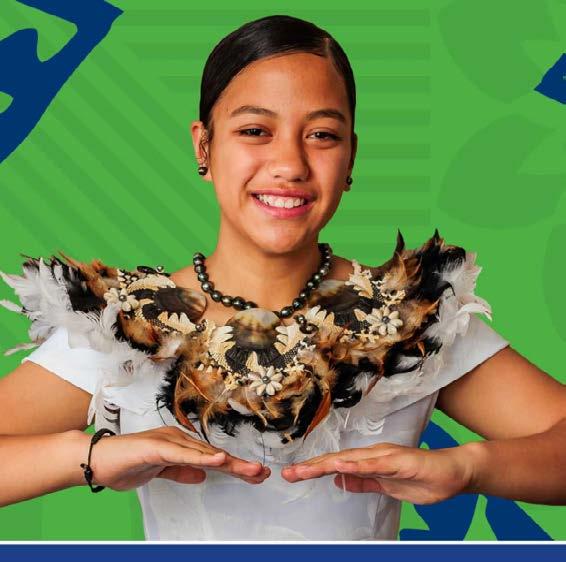
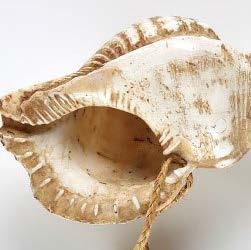
› Winter warmer recipe... Super easy corn fritters... pg 19

Whakamihi – Bouquets... pg 20–22
Ā mātou korero – Our stories
› World Breastfeeding Week an opportunity to review policy ... pg 23-24
Pānui – Notices... pg 25–28

2 31 July 2023 17 19
23 3 16 6
Cover photo: Retiring Te Whatu Ora kaimahi, top row from left: Anatomical Pathologist Jacqui Gardner and Radiologist Mike Hurrell. Bottom row from left: Paediatrician Philip Pattemore and Operations Manager Felicity Woodham
Kupu Arataki – Introduction

Breast milk donations needed
It’s World Breastfeeding Week (1-7 August) which is a time to raise awareness of the benefits of breastfeeding and this year’s theme, ‘Enabling Breast feeding: Making a difference for working parents’ shines a light on workplaces. Go to page 23 to read about World Breastfeeding Week and the experience of one of our own kaimahi who continued to breastfeed after returning to work from maternity leave.
You may be surprised to know that Te Whatu Ora Waitaha has a Human Milk Bank. Breast milk is particularly important for babies who have been born prematurely or any ill or unwell baby admitted to the Neonatal Intensive Care Unit (NICU). These babies have higher nutritional and immunity needs. When a parent’s own milk is not available the milk bank offers support by providing screened and pasteurised donor milk while the parent builds their milk production. Donated breast milk is a precious resource that is gifted by healthy breastfeeding parents who have breast milk surplus to their needs. The Human Milk Bank needs donations, and they don’t have to come just from Christchurch. Donated breast milk can be transported to the Christchurch Hospital NICU Milk Bank from virtually anywhere in the country.
If you or someone you know might be able to donate and help our most vulnerable and unwell little babies, please contact:
› Phone: (03) 364 4344
› Mobile: 021 190 5008 (Manager) or 021 241 2931 (Milk Bank Office)
› Email: MilkBankNICU@cdhb.health.nz
For more information and an FAQ on the Human Milk Bank, please refer to: https://www.cdhb.health. nz/health-services/human-milkbank/
Rebecca is a first-time mum to nine-monthold Isabella. Due to difficulties getting Isabella to latch, Rebecca has exclusively pumped her breast milk since her baby was two weeks old.

“I’m a registered nurse and prior to becoming a mum I worked in NICU for over five years. Pumping was incredibly normalised in our unit, and I was prepared for it to become a part of my feeding routine if needed. After a few days of trying to feed Isabella, I gave myself a break from breast feeding and started pumping. I was so amazed at the quantity I was able to express, it felt much more enjoyable for me, and my husband and family had the opportunity to feed Isabella - something they say is a special memory for them.
"We worked out I’ve pumped for approximately 524 hours since August last year, which is around 22 days straight.
"The most rewarding part of pumping has been having the opportunity to help other families with feeding their little ones. I am so grateful to have good supply and have donated over 150 litres to Christchurch Milk Bank as well as two local Auckland families over the last eight months.”

3 31 July 2023
Rebecca (pictured left and right with nine-month-old daughter Isabella, donates her excess breast milk to the Human Milk Bank
Last chance to vote on the Health Passport programme
Te Whatu Ora Waitaha kaimahi have until 4 August to contribute to the design of Fitness Passport – a discounted workplace health and fitness programme available to staff and their whānau. If you become a member, you and your whānau will be able to access a wide range of gyms, pools, and leisure centres as often as you like for less cost than a regular gym membership.
Your Fitness Passport membership is designed exclusively around the gyms and pools you and your colleagues want to use. You nominate the facilities for Fitness Passport to approach and once approved, you can visit all the facilities that make it onto your programme!
› Unlimited visits across all fitness facilities in your programme
› Individual and whānau memberships available

› Discounted fortnightly direct debit
› Simple hassle-free access
› Full facility access can include gyms, group classes and pools.

Building the programme requires your input. We need to know what fitness facilities you are interested in using with your membership.
The survey is open until Friday 4 August 2023 and takes only a few minutes to complete. It is important we get as many people as possible in our workplace to complete this survey to get the programme off the ground for us all.
Click here to complete the survey or scan the QR code and complete on your smartphone.

4 31 July 2023
Farewell to four outstanding colleagues
Four of our finest are profiled this week as they end their long and successful health careers and enter retirement. Operations Manager Felicity Woodham, Radiologist Mike Hurrell, Anatomical Pathologist Jacqui Gardner and Paediatrician Philip Pattermore feature on pages 9 to 15
Each has made a significant contribution to their field and will be sorely missed by colleagues, peers, patients, and those they have taught and mentored over the years.
We wish them all a happy and healthy retirement.
Christchurch Hospital Safe Area confirmed
Christchurch Hospital now has a Safe Area in place, as outlined in section 13(C) of the Contraception, Sterilisation and Abortion (Safe Areas)

Amendment Act 2022, which was gazetted on 27 July 2023.
Certain behaviours that may be distressing to a person accessing or providing abortion services or attempting to stop a person from accessing or providing these services, are prohibited within a Safe Area.
Examples of prohibited behaviours include:
› Blocking entrances to premises or preventing people from entering or leaving
› Photographing or videoing someone in a manner that is likely to cause emotional distress to someone accessing or providing abortion-related services
› Approaching a person to provide information about abortion services (unless part of the provision of services)
› Approaching a person to attempt to dissuade them from accessing these services

› Providing anti-abortion pamphlets or similar materials (unless part of the provision of services, or by a person who is accompanying the person accessing services)
› Engaging in protest about matters relating to the provision of abortion services.
A person convicted of engaging in prohibited behaviour within a Safe Area may be liable for a fine of up to $1,000.
You can find more information about Safe Areas, the prohibited behaviours and the regulations on the Ministry of Health website
The confirmed enforcement date for the Safe Area is 25 August 2023.
5 31 July 2023
Christchurch Hospital (pink) with the Safe Area highlighted in yellow
Māia Health Foundation Feast 2023
Māia Health Foundation's highly anticipated gala, Feast 2023, is just around the corner. There are limited tickets still available for those who would like to attend this event that helps make a great difference in our community.


On Saturday September 9, Feast is set to grace the iconic Limes Room at the Christchurch Town Hall. Māia Ambassador, Mike McRoberts, will host the evening while Executive Chef, Dan Shanks, has crafted an exquisite dining experience. Adding to the evening, live music by Julia Deans will set the perfect ambiance for the night enhanced by the visual elegance of Kim Chan Events.
With only 20 tickets remaining for this unforgettable event, you are encouraged to get in touch if you'd like to secure your spot.
Planning for possible strike by New Zealand Nurses Organisation members
Te Whatu Ora has received a strike notice from the New Zealand Nurses Organisation (NZNO) advising that their members intend to strike from 7am on Wednesday 9 August to 7am on Thursday 10 August 2023 (24 hours). If it goes ahead as planned, this will be a nationwide strike by nurses, health care assistants and some midwives.
Members of the NZNO have valued roles in our health system and we respect their right to protest or strike. We have a National Contingency Plan in place and are continuing to develop and implement local operational plans to ensure safe care and minimum disruption during the strike period.
There are several procedures, therapies and cares which can’t be safely deferred. This includes some dialysis and some cancer treatments which will go ahead. We will continue to provide all care which can’t be delayed until after the 24-hour strike.
Importantly, the Emergency Department will remain open throughout the intended industrial action. Anyone whose planned care (outpatient appointment or surgery/procedure) must be deferred will be contacted directly by phone or text.
As part of contingency planning we are also seeking volunteers from Te Whatu Ora staff to assist during the 24-hour period of the strike. For more information or to register your interest, check the intranet notice More information will be available on our website later this week.
6 31 July 2023
Māia Health Foundation ambassador and MC of Feast 2023 Mike McRoberts pictured at last year’s event
HPV vaccine key in reducing throat cancer
Last Thursday 27 July was World Head and Neck Cancer Day.
Often associated with drinking and smoking, the rapid rise in throat cancers in New Zealand is most commonly linked to the human papillomavirus (HPV). In fact, HPV is behind around 70 percent of all throat cancers.
HPV is a very common sexually transmitted infection and is linked to cervical, penile, vulvar, vaginal, head and neck, and anal cancers. In New Zealand, men are approximately four times more likely to be diagnosed with throat cancer, and Māori are disproportionately affected.
One of the best protections against head and neck cancers (as well as cervical cancer) is the HPV vaccine.
Here in New Zealand, the HPV vaccine is free for young people aged between 9 and 26 years of age. It is also offered in schools to children in years 7 and 8. More information is available here and in this video
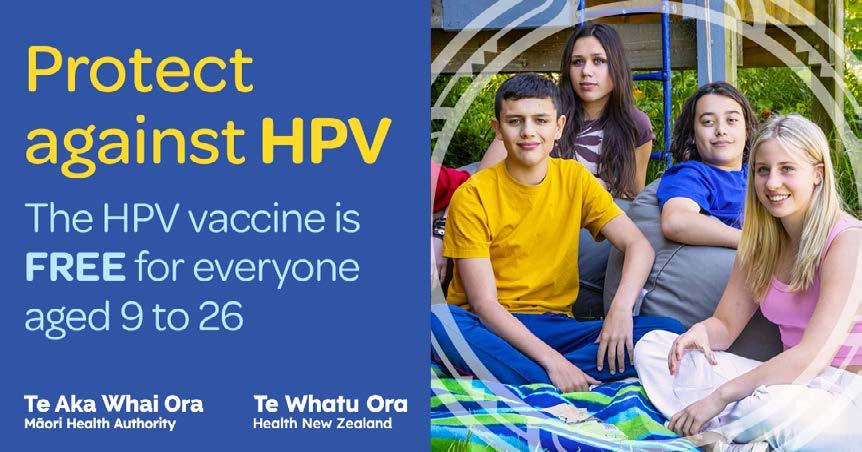
Cook Islands Language Week
Cook Islands Language Week runs from Sunday 31 July until Saturday 5 August. This year’s theme for ‘Epetoma o te reo Māori Kūki ‘Āirani – Cook Islands Language Week is 'Ātuitui’ia au ki te au peu o tōku kāinga Ipukarea, which means, ‘connect me to the traditions and culture of my homeland’.
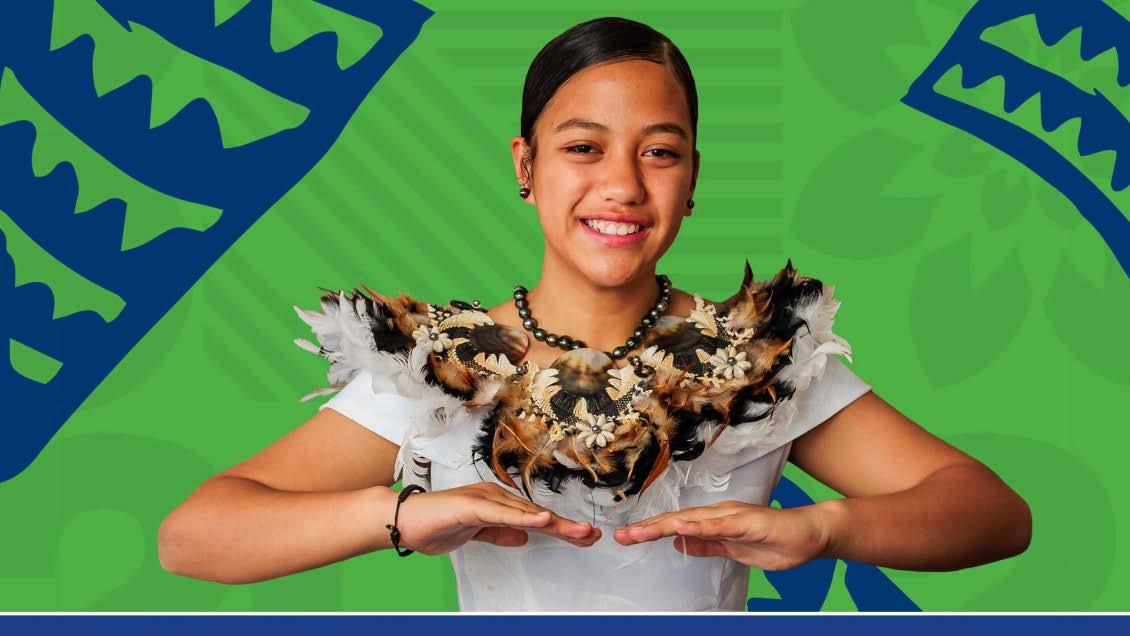
You can learn more about this week and events on the Ministry for Pacific Peoples website

7 31 July 2023
QUIZ - Name that song (1970s edition)
Can you name the classic 1970s song just from the first one or two lines? You might have to be of a certain age or a classic music fan to get 10 out of 10!

Note: This is the first in a series of 'name that song' quizzes. This will be followed by the 1980s, 1990s and 2000s (noughties) so there should be something for all ages.
1. “A long, long time ago…”
a. Let’s Stay Together by Al Green
b. American Pie by Don McLean
c. Dance Away by Roxy Music
d. If You Leave Me Now by Chicago
2. “Now here you go again, you say you want your freedom…”
a. Dreams by Fleetwood Mac
b. Me and Bobby McGee by Janis Joplin
c. Philadelphia Freedom by Elton John
d. No More Tears by Donna Summer
3. “Are you gonna take me home tonight? Aaaah, down beside that red fire light…”
a. Bicycle Race by Queen
b. Fat Bottomed Girls by Queen
c. Killer Queen by Queen
d. Tie your Mother Down by Queen
4. “If I leave here tomorrow, would you still remember me?”
a. Have You Ever Seen the Rain? by Creedence Clearwater Revival
b. Too Much Heaven by The Bee Gees
c. Free Bird by Lynyrd Skynyrd
d. Tonight’s the Night by Rod Stewart
5. “When are you gonna come down? When are you going to land?”
a. Goodbye Yellow Brick Road by Elton John
b. Daniel by Elton John
c. Rocketman by Elton John

d. Saturday Night’s Alright for Fighting by Elton John
6. “Love me or leave me, make your choice but believe me, I love you…”
a. Wuthering Heights by Kate Bush
b. I Do, I Do, I Do, I Do, I Do by ABBA
c. You’re So vain by Carly Simon
d. Ring My Bell by Anita Ward
7. “It’s a God-awful small affair, to the girl with the mousy hair…”
a. Heroes by David Bowie
b. Rebel Rebel by David Bowie
c. Fame by David Bowie
d. Life on Mars? By David Bowie
8. “I know your eyes in the morning sun. I feel you touch me in the pouring rain…”
a. More Than a Woman by The Bee Gees
b. Too Much Heaven by The Bee Gees
c. How Deep is Your Love? By The Bee Gees
d. You Should be Dancing by The Bee Gees
9. “When you’re weary, feeling small…”
a. Still by Commodores
b. I’m Not in Love by 10cc
c. Crazy Horses by The Osmonds
d. Bridge Over Troubled Water by Simon and Garfunkel
10. “On a dark desert highway, cool wind in my hair…”
a. Hotel California by The Eagles
b. Highway to Hell by ACDC
c. Ventura Highway by America
d. Stairway to Heaven by Led Zeppelin
Check your answers on page 26.
8 31 July 2023
Fascination with pathology leads to highly accomplished career
When Anatomical Pathologist Jacqui Gardner began medical school in Canada as a teenager, she never dreamt she would spend her career on the other side of the world.
“Four years into my training New Zealand had recently hosted the Commonwealth Games in Christchurch and the tourism board was busy marketing Aotearoa. I saw posters of beautiful scenes of New Zealand such as Fiordland and the Waitomo caves and decided to join the 11 members of my medical class of 60 who chose to do four months of study here.”
This is something that the class members were eligible to do at the end of their fourth year.
“I went to the library and had a look at the New Zealand Medical Journal. In the back were job adverts. One said: ‘Come to beautiful Caroline Bay, playground of the South Pacific’. So, I did! I spent two months at Timaru Hospital and then went up north to New Plymouth for two months. I loved the country – it was like a small version of Canada.”
Jacqui returned to New Zealand several years later as a house officer and met her future husband, Radiologist Mike Hurrell (Mike is also retiring and you can read about him on page 10). She joined him later in London where he had gone to study biomedical engineering and they married there in 1979. Jacqui did many locum jobs in London as a senior house officer, including a long stint in anaesthetics.
“In 1980 when Mike had finished his diploma we decided to return to New Zealand. He was from Christchurch, so we arranged training jobs at Christchurch Hospital, Mike in radiology and me in pathology. My first rotation as pathology trainee was in tissue pathology and I was hooked!” she says.
Jacqui hangs up her microscope today, retiring after 43 years of loyal service to the Anatomical Pathology Department.

Training to be a tissue pathologist is different to other branches of medicine, Jacqui says.
“We are trained to look down a microscope, to analyse thin slices of tissue coloured pink and blue. Early on I used to feel seasick because of the movement of the slide under the microscope.”

After five years of training and exams Jacqui became a specialist and in 1986 was appointed as a senior medical officer at Christchurch Hospital. In those days her work comprised running a busy autopsy service and analysing tissue removed from all over the body for diagnosis.
“Autopsies were needed as there were no helpful body scans and hospital doctors wanted to find out more about the diseases their patients had succumbed to. Nowadays radiology has replaced the hospital autopsy, and most of our job is examining tissue removed from living patients.”
Jacqui says that when she was at medical school she was fascinated by diseases of the kidney, and skin and much to her delight, these are the two areas she has sub-specialised in.
“In the last 10 years I have become keenly interested in melanoma, a particularly lethal cancer of the skin. Our unit has led the way in special testing of melanoma samples, to help guide treatment. This work has been hugely supported by the plastic surgery team.”
9 Ā mātou
31 July 2023
tāngata – Our people
Anatomical Pathologist Jacqui Gardner
Clinical Director of Anatomical Pathology Brooke Beardsley says Jacqui’s experience and expertise will be greatly missed.
“Her depth of knowledge, developed over a lifetime of continued study and research, is not something that can be easily replaced. Jacqui has contributed to advances in pathology, particularly in the field of melanoma, and patients will continue to benefit from this even after her retirement. In addition, she has been unfailingly generous with passing on her knowledge and has helped train generations of anatomical pathologists who continue to work in this country (myself, included). We wish Jacqui all the best for her retirement, she certainly deserves it.”
Jacqui says she has analysed around 130,000 patient samples over her career.
“The best part of my job has been thinking like a detective! As part of the diagnostic team over many years I have got to know the patients albeit at a distance. I care about them and how they are getting on even without ever meeting them.”
Jacqui taught pathology to fourth and fifth-year medical students (including her daughter Alex) for many years, sometimes with her husband Mike. She has also enjoyed helping to train over 40 pathologists many of whom have become lifelong friends. She says receiving the Royal College of Pathologists of Australasia Outstanding Teaching Award in 2016 is one of her proudest achievements.
Huge advances in technology during radiology career


In the 1970s thousands of people were out on the streets of New Zealand protesting about this country’s involvement in the Vietnam War. One of those was Radiologist Mike Hurrell, who at the time was doing his medical training at Auckland Medical School.
“The university campus was very active politically and it was exciting for us pre-clinical students to get out onto the streets and participate in well attended peaceful protests,” says Mike, who has recently retired from a 40-year long career.
Mike moved to Hamilton for his house surgeon years where he met many Australians and Canadians who were attracted to New Zealand.
“Including the young Dr Jacqui Gardner. The annual Waikato Hospital Raft Race was our bonding moment, as we sat with friends shivering in our poorly designed craft, drifting down the Waikato River, while being bombarded with flour bombs and eggs from bridges above!”
Mike says he had always been fascinated with science and computers, so, along with Jacqui, shifted to London to study bioengineering at Imperial College for a year followed by several months at the Clinical Research Centre (CRC) at Northwick Park Hospital.
There he learnt about engineering in medicine and received hands-on programming and prototyping at the CRC to solve real-life problems.
“It was great fun and very exciting, but not well paid! So, we returned to New Zealand and organised training jobs at Christchurch Hospital.”
It was during training in the early 1980s that Mike began teaching.
10 31 July 2023
Radiologist Mike Hurrell
“I got to take fourth year students through radiographs relating to general medicine at first, followed by respiratory medicine and neurology. Opportunities then arose to take short informal tutorials with our medical imaging technologists. I had caught the teaching bug!
“More recently, Andrew Miller and I created a set of medical student tutorials that showcased common pathologies and their imaging. It was fun to teach, especially when Jacqui was a pathology tutor for the same group as I was teaching.”
There has been an explosion of technology in radiology during his professional lifetime, Mike says.
“In the 80s radiology was mostly limited to X-rays, basic ultrasound, and special examinations such as dye examinations of blood vessels, joints or the spinal canal. Little did I know it, but an amazing era of technological expansion was beginning! Computer developments began changing our specialty. Nuclear medicine was being transformed, making it easier to acquire lung scans, bone scans, kidney, heart and thyroid scans.
“In 1980 CT had just arrived at Christchurch Hospital, and for the first time we could see things previously hidden from us such as bleeds in the brain and tumours. This revolutionised diagnosis of stroke and malignancy.”
New catheter technology made it possible not only to see abnormal blood vessels better, but also created new tools to open blocked vessels or to close off vessels that were bleeding – part of the new field of interventional radiology. Ultrasound single-shot photos became moving images, which allowed faster examinations, and colour ‘Doppler’ images showing blood flow became standard.
“MRI arrived in 1993. Then CT and MRI images just got better, and scans got faster. I specialised in

neuroimaging after completing my training and have had the pleasure of working with some excellent neurologists and neurosurgeons.
"Highlights have been the neurosciences meeting when patients were presented, and we could ask them questions and watch them being examined. This was invaluable to me who was working away from the clinical environment,” Mike says.
Mike says the development of stroke interventions has been a high point during his career.
“Stroke used to be regarded as a fait accompli, but rapid access to imaging, new interventional radiology tools and effective drugs have changed that, with many patients now making a useful partial or even complete recovery.
“Another highlight has been the development of a peer learning system that helps all radiologists learn from our mistakes. When another radiologist reviews our reports, if there is a difference of opinion, this is flagged on the PACS system. If there is something to learn from these examinations, they are presented to the wider group of radiologists so we can all learn.”
Chief of Radiology Sharyn MacDonald says Mike's willingness to share knowledge, and to provide support and guidance has shaped the careers of many.
“He has been an exceptional radiologist, mentor, and teacher whose contagious happiness and zest for life have been a source of inspiration for us all.”
Clinical and radiology colleagues, as well as the wider support team, have helped on his journey, Mike says.
“I have been extremely fortunate to be working in a friendly supportive environment that puts the patient first and encourages intellectual curiosity and rigour.”
11 31 July 2023
Five-decade career spans the clinical and operational
From working as an office junior in Radiotherapy, to radiation therapist and operations manager, Felicity Woodham describes her 50-year career in health as developing and using a range of leadership skills that are transferrable and support others to succeed.

“It’s been a journey, full of challenges – which I need and seek out. I think I have been an advocate for ‘getting stuff done’. For me it’s about being a little courageous, stepping out of the normal professional trajectory and doing completely different things – such as my work in the Business Development Unit (BDU) and Planning and Funding.”
“Being able to make a difference and support others is important to me," Felicity says.
“I have seen my role as making it as easy as possible for frontline staff to do the right thing first time, every time. I took this from an NHS Human Factors paper, a quote made by a person in a similar role.”
In a career that spans over five decades and several different areas of the Canterbury Health System, there are many highlights.
“The top of the list goes to the people, the people, the people. I have made life-long friendships throughout my working life. I value you all. I have learnt so much from those I have worked with, and continue to, even today. I have really valued the range of working partnerships and I enjoy supporting and watching people thrive.”
Felicity’s first day of work at Christchurch Hospital was in November 1972 when she started as office junior in Radiotherapy, straight from school. A year later she began hospital-based training as a therapy radiographer, qualifying in 1975 with a Diploma in Therapy Radiography, London.
After five years off work when she had children, Felicity returned to Christchurch Hospital as a radiation therapist. In 1993 she was a member of an international beta test team for an early version of Varis, the radiation therapy record and patient management system.
“Looking back, this set me up for my current involvement in the South Island Patient Information Care System (SI PICS),” Felicity says.
That was followed by her appointment as Charge Radiation Therapist and as Chair of the Medical Radiation Technologist Board from 1999 to 2004. She was made an Honorary Fellow of the New Zealand Institute of Medical Radiation Technology. Felicity received the Varian Award in 1997 in recognition of her services to the profession.
She was Service Manager, Oncology Haematology and Palliative Care (2000-2003) and worked in the BDU from 2003-2007.
“Highlights there were getting to understand production engineering/planning, queuing theory, capacity and demand management, and fun stuff like the ‘Seeing 2020’ initiative and creating the ‘Make it Better’ and Showcase 2009 projects. Partnering with the BDU and Ross Denton to facilitate Xcelr8 and Particip8 was particularly rewarding”.
A project during this period was rewarded with a runner-up placing in the National Health Innovations Awards in 2006, partnering with the NZ Blood Service.
In 2007 Felicity moved on to Planning and Funding, where she was Programme Manager completing a piece of work under the banner of Health Services Planning.

12 31 July 2023
Operations Manager Felicity Woodham at her retirement function
“I worked closely with Dr Nigel Millar, looking at how we can work together to deliver traditional health specialty services differently.”
This morphed into a role from 2008-2011 as Project Specialist, Service Transition, Planning and Funding which included working with the West Coast and Kaikōura and starting the design of integrated family health hubs.


“In April 2011 it was back to Christchurch Hospital as an Operations Manager, post-quake, initially to support Radiology, and two years later I was appointed as Operations Manager, Clinical Support, along with Keith Wright a newly appointed Operations Manager.”
Felicity continued to work with Radiology, preparing for the expansion of services at Burwood Hospital and then at Waipapa. She partnered with Chief of Radiology Sharyn MacDonald on a number of initiatives, including the implementation of electronic encounter-based radiology orders (requests).
In 2017 she was preparing the transition to the then new Christchurch Outpatients building for 13 services to call it home and a further 14 services who access the clinical areas there – as well as working preparing for the transition from Homer to SI PICS and everything clinical administration. Together we have framed the phrase ‘greatest need, longest wait, with an equity lens’ to support how we decide who is booked next from our many queues of patients.
“And anything else the boss (aka Pauline Clark) asks!”
Administration Manager Combined Christchurch Campus Kay Strang says Felicity has been an unstinting champion of administration folk over many years.
“Although Flis has ‘left the building’, the knowledge she has shared, and her thinking are now embedded in the way administrators work and the focus they place on our patients while they are in our care. On behalf of all administrators, I would like to say a huge thank you to her. Know that we will continue the journey you began to make it easy for administrators to do the right thing.”
Senior Manager Specialist Services and Non-Clinical Support Keith Wright says Felicity will be missed in the system.
“She’s been a constant presence, insisting that we work together to always do the right thing for the people we serve, the people we work alongside and the system that we all serve within. The reminder to always test our decision against our agreed principles will ring in the ears of people working throughout the system for years to come.
“It is wonderful to see Felicity leaving the system in good heart, being welcomed back into the full care of her family and I look forward to borrowing her back occasionally when I need her time”.
13 31 July 2023
Advances in treatment highlight of paediatric career
Increasing the life expectancy of children with cystic fibrosis (CF) has been a highlight for Respiratory Paediatrician Philip Pattemore, who retired from Christchurch Hospital late last month and is doing part-time contract work for the hospital and the University of Otago.
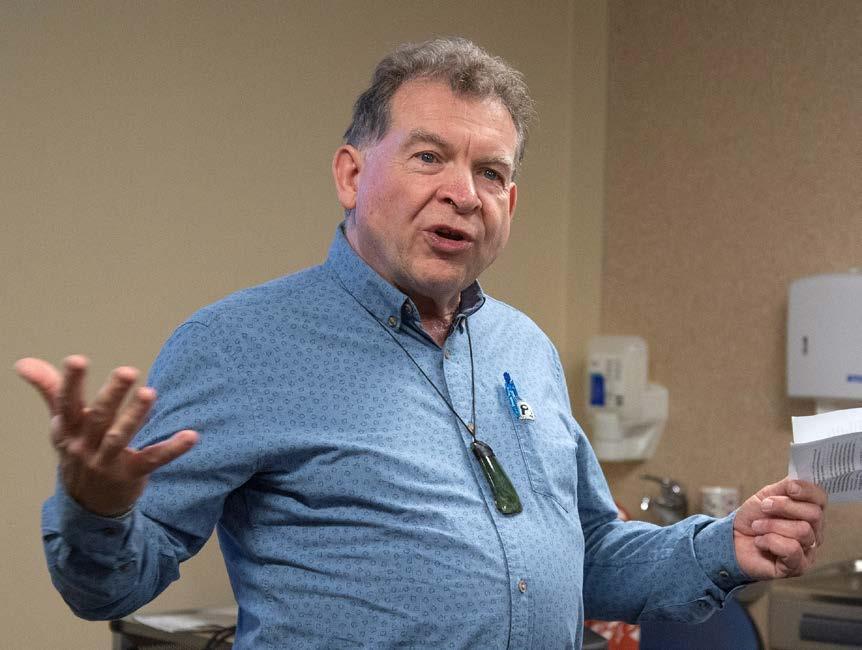
“This occurred gradually over the decades with more knowledge and intensification of nutritional and airway goals and treatment. We had three deaths in paediatric CF patients in my first two decades here and none in the last decade.”
“Added to this is the new modulator treatments which have already shown great promise in some of the most severe patients and are likely to revolutionise CF management. To the extent that children in future may grow up not believing they have CF because they have never experienced any symptoms.”
Asthma treatment has also more subtly improved.
“When I started, asthma was the most common referral to respiratory outpatients, but it has now got to the stage when, asked to recruit severe asthma patients for a study, I could only identify 10 in the clinic,” he says.
Philip was born in Sydney to Australian and Irish missionary parents and grew up in India. The family moved to New Zealand in 1969 and Philip trained to be a doctor in Auckland. He entered the paediatric training scheme there in 1981.
“I decided to train in paediatrics partly because I had heard paediatrics was a needed area in emerging countries, and with my background in India that interested me.”
He later did two sabbaticals in India which Philip describes as major learning episodes about innovative medical care in impoverished environments. His other inspiration was a trainee intern attachment in Gisborne under Paediatrician David Frankish.

“He imparted to me an enjoyment of working with children, and an academic interest in paediatrics.”
In 1984 Philip married fellow doctor Wendy Young. He trained at Princess Mary Hospital in Auckland, a World War II relic now replaced by Starship Hospital, and took up a part-time job as research fellow for a study of asthma prevalence in Auckland schools.
“That was my introduction to respiratory paediatrics,” says Philip.
He went on to undertake research, including a fellowship to Southampton in the UK on respiratory virus infections as triggers of asthma in children, collaborating with the Medical Research Council Common Cold Unit in Salisbury.
“This unit was developing new virus DNA probes, which morphed into early polymerase chain reaction (PCR) for rhinoviruses and coronaviruses. My colleague, Seb Johnston, later developed this into a multiplex respiratory virus PCR which is the basis of the PCR tests used around the world today.”
Philip started work in 1992 at Christchurch Hospital as sole Respiratory Paediatrician.
“I requested a computer, a Mac LC125, which was the first colour-screen computer in the department, and the secretaries used to come and ask me what the mouse was for, and why I needed colour (there was no digital photography or videos at the time).”
14 31 July 2023
Paediatrician Philip Pattemore speaking at his retirement get together
The job was very busy and during winter there could be 30 admissions, mostly for bronchiolitis. These patients were nursed in six-bed rooms in Ward 22.


“There were 16 cystic fibrosis patients when I started, now there are 45 to 50.”
In 1995 Philip took over as convenor of fifth year paediatric teaching, which he did until 2018. He was a member of the RACP Committee for paediatric physician training from 1994-2001 and the examinations committee from 1998-2009. Philip took on the unofficial mantle of spokesperson for Smokefree issues for the Paediatric Society, which meant a lot of submissions to Parliament and to health select committees.
“I was convenor of the Respiratory Committee from 1999-2002, during which time we secured network funding for sleep guidelines and services, guidelines on asthma in children and on bronchiolitis.”
Chief of Child Health Clare Doocey says Philip has been a pillar of the paediatric service for 31 years, with his contribution to clinical care, teaching, and research.
“Philip taught many of the current staff when they were students and junior doctors and his ability to help children cope with chronic medical conditions along with providing excellent clinical care inspired them to train in paediatrics. Kindness, calmness, and inspiration were some of the words used by staff and patients to describe Philip when the department thanked him for his service last week.”
A highlight of his career has been working with amazing staff, in what is a very collaborative department, Philip says.
“I have very much enjoyed interacting with kids from babies to adolescents. Taking time to get to know them has been very rewarding. We have had a very good teaching department and I have appreciated the support from hospital and university colleagues and from RMOs in teaching.”
“I’ve thoroughly enjoyed my career in paediatrics, and would choose it, and Christchurch, again.”

15 31 July 2023
One minute with… Jessica (Yonghua)

Zhu,
Registered Nurse, Ward A5, Christchurch Hospital
What does your job involve?
Performing nurse assessments on pre and post operative patients with their whānau which guides the care delivery provided. I also develop plans, carrying out nursing care by working with patients, their whānau, and other health professionals in the team. I work closely with multi-disciplinary teams to achieve the best patient health outcomes. Working in a team, I participate in new staff/student orientation and training, providing support and guidance to help settle in but also get familiar with assessment tools, processes and policies here at Te Whatu Ora.
What pathway got you to this job?
I completed a Bachelor of Nursing degree at Te Pukenga Ara. I then went through the NetP (Nursing Entry to Practice) programme in my first year of practice here at Te Whatu Ora Waitaha Canterbury.
What advice would you give someone keen to enter your field?
Just do it! It is varied and there are a lot of options. Nursing can be challenging, and you need to focus on multitasking. You learn every day. Nursing is also rewarding when you see the active influence that you have on patients and their whānau.
Who inspires you and why?
In my younger years I had a family member who required treatment in hospital, and I became interested in nursing as I watched the nurses giving care to their patients, and always encouraging them with a positive attitude. I wanted to be that nurse and be able to help and care for patients.
What do Waitaha Canterbury’s values (Care and respect for others, Integrity in all we do and Responsibility for outcomes) mean to you in your role? mean to you in your role?
In the healthcare workplace, patients need to feel safe during their hospital stay. To me as a nurse, these values mean treating patients with respect and kindness while providing care and treatment, also considering their concerns and thoughts by
offering more information/education about their health. Maintaining honesty and good decisions for patients is crucial for a positive therapeutic relationship. It’s also important to be accountable for the care delivered, learning from any mistakes that can improve my quality of care delivery in future.
If you could be anywhere in the world right now, where would you be?
I am happy where I am now. I enjoy the time spend with my family and loved ones who live here. I enjoy my current career.
Who would you want to play you if there was a movie made about your life?
Scarlett Johansson, I like her character personality in the Marvel movies.
What are some of the ways you and your whānau show their aroha/love for our planet?

We love planting at home and getting out in the garden. We also support the ‘no plastic movement’ and have given up single-use plastic by using reusable bags.
What are my hobbies/ interests outside of work?
I enjoy travel and food, so I usually take road trips and visit local restaurants with my friends and family during my leisure time.
If you would like to take part in this column or would like to nominate someone please contact Naomi.Gilling@cdhb.health.nz
16 31 July 2023
Akoranga reo Māori – lesson #25
Taonga pūoro – Māori musical instruments
Kei ngā manu e korokī ana i te reo rōreka o kōpūrehe mā, o kōkōtea mā, e mihi ana. To the birds singing the melodious language of our ancestors, greetings.
This week we are going to focus our attention on taonga pūoro or traditional Māori musical instruments with a look at just a few specific instruments.

Originally, taonga pūoro were used for many purposes including:
› As a call to arms in battle
› Warning of danger
› Sounding the dawn of a new day
› Communication with the atua Māori (deity/ gods)
› Signifying planting of certain crops at certain times
› Aiding in childbirth
› Healing
› Sending messages
› Formal ceremonies
Music is seen as integral to the wellbeing of Māori people and taonga pūoro, regarded as gifts from the atua, have many spiritual functions. As such, they are treated with much respect and are often personified and given personal names. Each taonga pūoro has its own voice and they are grouped in whānau groupings.
Whānau o Tangaroa (Family of the atua of the sea)
Pūtātara are regarded as a special koha (gift) from Tangaroa. The pūtātara signals arrival on a marae, the birth of a child, a call to arms or to summon people to learn in a formal setting. The Pūkāea is used as a welcome, to announce events or important occasions, as well as a war trumpet.

Whānau o Raukatauri (Family of Raukatauri)
Pūtorino are shaped like the cocoon of the case moth and are said to have a male and female voice, as well as a reo wairua (spiritual voice).
Kōauau are the most common type of Māori flute. Traditionally made from wood, kelp, albatross and likely moa bones.


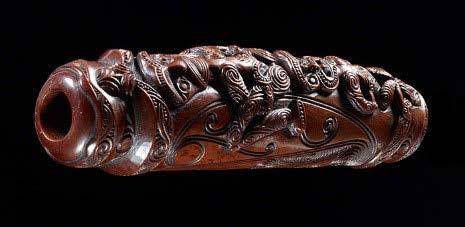
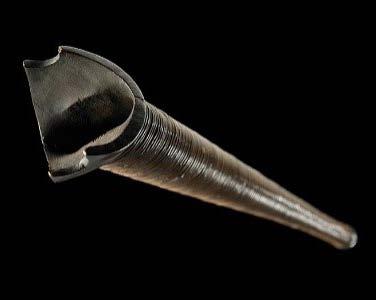
Kōauau replicate the sound made by the empty cocoon of a case moth and are used in entertainment, health, grieving and to ease pain.
Whānau o Hinepūtehue (Family of Hinepūtehue)
Hinepūtehue is the spiritual entity for the hue (gourd) and she is associated with calming storms. The sounds created by the hue are soothing and peaceful.
Whānau o Tāwhirimātea (Family of atua of winds and storms)
Porotiti take the hopes of the person playing the instrument and distribute them on the four winds. They are also used as healing aids. Their ultrasonic sounds and vibrations are used to help with arthritis and to clear infants’ sinuses.
› Māori musical instruments | Te Papa
› Māori musical concepts – Te Ara Encyclopaedia of New Zealand
If you have any questions or feedback, please make contact via the email below. Hauora.Maori@cdhb.health.nz

17 31 July 2023
He whakapātaritari – A challenge
Do you listen to much Māori music? What about the epic classics such as “Poi e”?
Search Spotify for Māori anthems and have a listen to some more contemporary Māori music. There is an embarrassment of riches these days and there is generally something for most tastes, including heavy metal...if that is your thing.

I mōhio rānei koe? Did you know?
This week, 42 years ago, on 29 July 1981, our very own world-renowned opera singer, Dame Kiri Te Kanawa, sang ‘Let the bright Seraphim’ at the wedding of Prince Charles and Lady Diana Spencer in St Paul’s Cathedral in London.
Kiri Te Kanawa sings at Royal Wedding | NZHistory, New Zealand history online

Whiua ō koutou reo rōreka ki te ao!
Throw your melodious voices out to the world!
If you have any questions or feedback, please make contact via the email below. Hauora.Maori@cdhb.health.nz
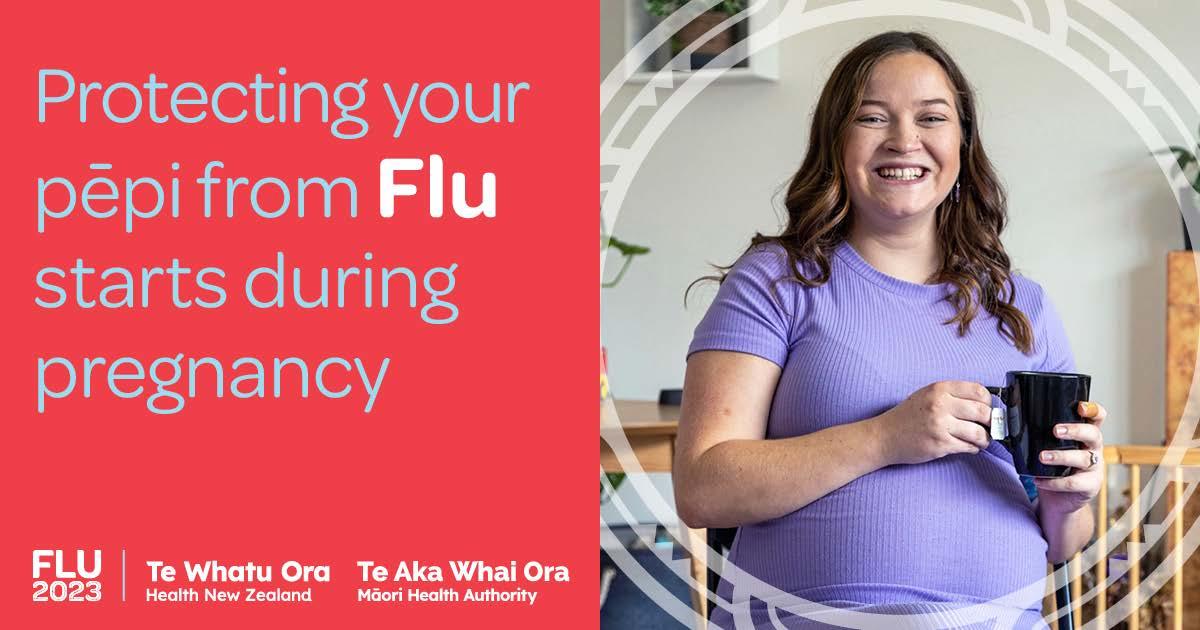
18 31 July 2023
Winter warmer recipe
Super easy corn fritters
Ingredients:
› ¾ cup of flour
› 1 tsp baking powder
› ½ tsp salt
› 1-2 tsp black pepper
› 1 egg, beaten
› 440g can of cream-style corn
› 2-3 tbsp oil

Method:
Sift the flour and baking powder into a bowl. Add the salt and pepper.
Pour in the beaten egg and stir to combine before adding the tin of corn.
Heat the oil in a shallow frying pan. Drop spoonfuls of the fritter mixture in the pan (about the size of the palm of your hand). Cook until golden then turn and cook the other side.
Drain on absorbent paper and keep warm until all the fritters are cooked.
Serve hot with a tasty relish or sour cream and sweet chilli sauce.
Corn fritters are a great breakfast/brunch food served with eggs, bacon, and other favourites. They’re also delicious with a salad for lunch.
For something different, you could add finely chopped spring onions, a little minced garlic or chilli flakes to your fritter mixture.

19 31 July 2023
Whakamihi – Bouquets
Ward 24, Christchurch Hospital
Thank you to the angels of Ward 24. I couldn’t ask for more. You are all worth your weight in gold.
Charlie, Christchurch Opioid Recovery Service (CORS), Hillmorton Hospital

Charlie Hulbert is an absolute credit to CORS. The impassioned effort, time, and leadership he has, and for me as his client is immeasurable. I know he believes in me. If CORS is the cherry, then Charlie’s the cake! Thank you to CORS, Charlie, and everyone else here too.
Outpatient Unit, Specialist Mental Health Services, Hillmorton
Mental Health is complex. I was extra lucky to find a psychiatrist that was well suited for me, listened well and nailed the medications, which has been life changing. I will forever be grateful to him, the team, and modern medicine.
Acute Medical Assessment Unit (AMAU) and Ear, Nose and Throat (ENT) Outpatients, Christchurch Hospital
I want to acknowledge the great work of the team in AMAU, especially Registered Nurse Katelyn, whose assertiveness sped up my journey through to ENT Outpatients. I also want to acknowledge Dr Lance in ENT Outpatients for his management of an anxious patient and his skill with a scalpel.
Emergency Department (ED), Christchurch Hospital
All staff I encountered were friendly, respectful, and so lovely to deal with. I was in and out of the department complete with moon boot, crutches, and an appointment card within one and a half hours. I was so impressed, especially knowing there are staff shortages which add to their busy workloads. If I could remember all their names, I would love to thank each staff member. Such a good experience.
Volunteers, Christchurch Hospital
I’m hoping you can pass on a compliment to the volunteers who were so smiley and friendly. We were having a tough time and trying to deal with bad news, and it really did make a difference.
To: Trudy Little, Supply Coordinator

The Colposcopy Clinic would like to give a big shout out to Trudy who is our supply coordinator. She goes above and beyond to ensure we have all our supplies. Trudy will always find what we need, she is very approachable, and nothing is ever a problem for her.
From: The Colposcopy Clinic team #carestartshere
20
31 July 2023
Christchurch Outpatients Blood Test Centre, Canterbury Health Laboratories
I brought my five-year-old son in for a blood test. The service was outstanding. The two phlebotomists who took the blood test were kind and very efficient. My son was quite worried about the blood test but the women who took the blood were so sensitive to his needs, and he actually enjoyed the experience.
Surgical Assessment and Review Area (SARA), Christchurch Hospital
I could not fault the nursing care I got, with a particularly big mention to three of your nurses, Alfred, Georgia and Kyrene, they were amazing.
Claire, Patient Information Office
Claire Thornton in the Patient Information Office was really helpful both on the phone and through email, going above and beyond what I expected to get me a really fast response as soon as possible. I called at 4:30pm to make a request for information about a previous scan, and she replied with a copy of my notes the following morning at 5:18am after I had sent my proof of identity. Please pass on the positive feedback both to her and her manager, as I think she has been so helpful and I appreciate her really caring attitude on the phone, and her prompt reply about the notes that I needed for ACC. It was very clear to see that she cared about helping other people and it meant the world to me after struggling with ACC for a whole week.
ED, Medical Assessment, Parkside Ground Medical (PGM)

Thank you to all the teams that looked after me during my recent stay in Christchurch Hospital. From the ED, through to Medical Assessment, and PGM. I received the best of care and attention. Particularly Jess in PGM who took time to talk to my husband and reassure him.
Ward B6, Christchurch Hospital
A massive thanks to all the staff for their great care.
Katie, Ward 18, Christchurch Hospital
Katie in Ward 18 is absolutely amazing, such a warm and caring person who took excellent care of my mother. Best wishes and many thanks to her.
Chris, Social Worker, Community North/East Team, Older Persons Health and Rehabilitation
Recently I had Chris Hunter out to do an assessment on my mother who is 99 years old. We wondered how she would accept this however Chris created a rapport with her with a genuine interest in her earlier life. This set a lovely tone for the further questions he asked her. It was wonderful to see how he had her at ease. As a family observing this we were blown away with his gentleness and caring way. Later, after he left, she was full of praise for him telling us how much she enjoyed his visit. We would like you to know, which I am sure you do, what a gem you work with.
ED, Intensive Care Unit (ICU),
Ward 14 and Ward 10, Christchurch Hospital
I used to just drive past the hospital. Having spent the last six weeks there - after being suddenly struck down with sepsis - I was ushered into a journey from being fit healthy and well through three scrapes with death, kidney failure, then open heart surgery due to the damage caused by the infection - including three stints in ICU. I now have a different perspective of that hospital - indeed the whole health system. Inside that hospital is a hum of dedicated people whose lives are all about caring for others. You may say that is their profession, but it is more than that. They care for life. So next time you get sick or hurt yourself, remember that to get you better you will receive minutes, hours, days, or weeks of professional attention kindness and care which has taken years, if not many years to learn.
Ward 25, Christchurch Hospital
The two nurses who looked after me both before and after the procedure were outstanding –professional, knowledgeable and most importantly, caring. All the nurses and doctors went beyond their duty of care to make sure I was well looked after and feel valued. I just can’t speak highly enough of their dedication and empathy working in what must be a demanding and stretched profession.
Cardiac Day Unit, Christchurch Hospital
I arrived feeling very nervous and was greeted by Ness with a smile and warm nature, and I felt at ease. She was my amazing carer and I received fantastic care from the whole team. I loved the team banter and the warm atmosphere. Thanks a lot.
21 31 July 2023
Tessa, ED Psychiatric team, Christchurch Hospital
You have a lovely staff member, her name is Tessa, working in your ED pysch team. She is so kind and lovely and she understands mental health like no other mental health professional. I went to her tonight because I was overwhelmed with stuff going on. She reminded me I’m doing good, and she’s proud of me. She is so kind and compassionate and she’s amazing at her job.
ICU, Christchurch Hospital
So, so impressed with the care in ICU and the environment. We feel so fortunate to have such an incredibly facility.
ED and Surgery, Christchurch Hospital
Outstanding service by every staff member during my mum’s stay. I can’t say enough about the attentiveness of staff, their empathy and communication. Appreciate the pressures you are working under too. Many thanks.
Heid, Christchurch Hospital
I went to ED with a suspected broken ankle. I had the pleasure of meeting Registered Nurse Heidi. What an absolute asset she is with such a caring and professional manner. She explained what was happening and what I needed to do afterwards. Thank you, Heidi, you truly are a fantastic nurse.
Wayfinding
Volunteer, Christchurch Hospital
I want to thank the lady wayfinding volunteer who walked me all the way to the Radiology department. She was so helpful, like all the other friendly super staff. Love you guys.
Brooke
and Sophie, Ward 27, Christchurch Hospital
Brooke Witham is an outstanding nurse. Also, Sophie was fabulous to my father. Much appreciation.
Nigel, WellFood and Brooke, PGM, Christchurch Hospital
I would like to thank Catering Assistant Nigel Thomas for his caring way when sorting Dad’s meals. He is an awesome guy. Also, Brooke, as a nurse, she stands out in the crowd. Her kindness and care is really appreciated.
Children’s Emergency Care, Christchurch Hospital
Awesome service, great staff. Can’t thank you enough!
Daniel, Neurosurgery, Christchurch Hospital
I want to say thank you to Daniel, the neurosurgeon who explained the procedure that my husband had to have. He described it so well and was very helpful when making a decision. The operation went ahead and was a success. Thank you.
Christchurch Hospital
The people who have been taking me through my breast cancer treatment steps have been absolutely wonderful.
ED, Christchurch Hospital
I would like to thank all your staff who I had dealings with. They are so wonderful. I have had to come to ED several times this month and have been treated with respect and the care has been excellent. Keep up the excellent service.
Ward 24, Christchurch Hospital
To all the Ward 24 team, including Ward Clerk Alison, Nurses Alex, Juliet and John and Occupational Therapist Britta and all the other nurses, hospital aids, I appreciate all the care and help I was given. Special thanks to Nurse Alex for her exceptional kind and caring care and patience. Special thanks to Ward Clerk Alison for treating me as a person, not a patient. I was grateful to have Occupational Therapist Britta assess me at home and the awesome Dr Stella. Thanks again.
Gynaecology Ward, Christchurch Women’s Hospital
What an amazing service. Wait time minimal. Informative consultation. Delightful, friendly staff, who all put me at ease. Despite the procedure, overall great experience. Thank you to the hardworking team. Hats off.
Yvonne, Maternity Outpatients, Christchurch Women’s Hospital
Yvonne, the phlebotomist in Women’s Outpatients is absolutely amazing. She was so helpful and reassuring on the phone right through the appointment! She is a true asset to the unit and deserves a great big compliment! Thank you!

22 31 July 2023
World Breastfeeding Week an opportunity to review policy
World Breastfeeding week 2023 begins tomorrow with the theme of ‘Enabling Breastfeeding: Making a difference for working parents’.
This provides the perfect opportunity to review Te Whatu Ora Waitaha Canterbury’s Breastfeeding/ Chestfeeding Friendly Workplace policy, says Midwife and Christchurch Women’s Hospital Baby Friendly Hospital Initiative (BFHI) Coordinator Sarita Gargiulo-Welch.

“Historically a document owned by the Women’s and Children’s Health Department, there is energy and enthusiasm from Te Whatu Ora Waitaha leadership teams to expand the scope of this policy across all Te Whatu Ora Waitaha Services, and beyond.”

Many areas are already supporting employees to continue their breastfeeding/chestfeeding journeys for employees returning to work. This can be perceived to be easier for areas whose core role is dedicated to supporting mothers/parents and pēpi, such as maternity and paediatric wards, she says. The intention of the revised Breastfeeding/ Chestfeeding Friendly Workplace policy is to enable managers and staff to talk together about infant feeding intentions when returning from parental leave.
“It encourages staff to understand their rights as a breastfeeding/chestfeeding parent returning to work, and managers to understand how best to support this. The practicalities can include the availability of an appropriate space to breastfeed/ chestfeed or express while at work.”
Where dedicated areas are not possible due to space restrictions in health care facilities, it is important that managers are able to help facilitate customisable, mutually agreeable, safe, and private spaces for their employees to breastfeed/chestfeed or express.
The revised Breastfeeding/Chestfeeding Workplace Friendly policy will be available on the intranet soon (Ref: 2409676. For more information and support for implementing this policy in your work area, you are welcome to contact Sarita by email: Sarita.gargiulowelch@cdhb.health.nz.
Ward Administrator at Ashburton Hospital Hayley Raj has described what it was like for her returning to work after maternity leave and having to express milk. Although her wish to continue breastfeeding once she was back at work was well supported by her manager, she did experience some challenges which shows there is still more that we can do to make this process easier for parents: Read her story on the next page
23 Ā mātou kōrero – Our stories 31 July 2023
Ashburton Hospital Ward Administrator Hayley Raj and her son Beau
Hayley’s story:
“I returned to work when my son was nine months old in February 2022. After having a chat with my manager about my wishes to express breast milk during my shift I felt heard and supported. She liaised with an Associate Charge Nurse Manager (ACNM), and they found a space which was not often utilised and made an area in a fridge where I could store my breast milk.
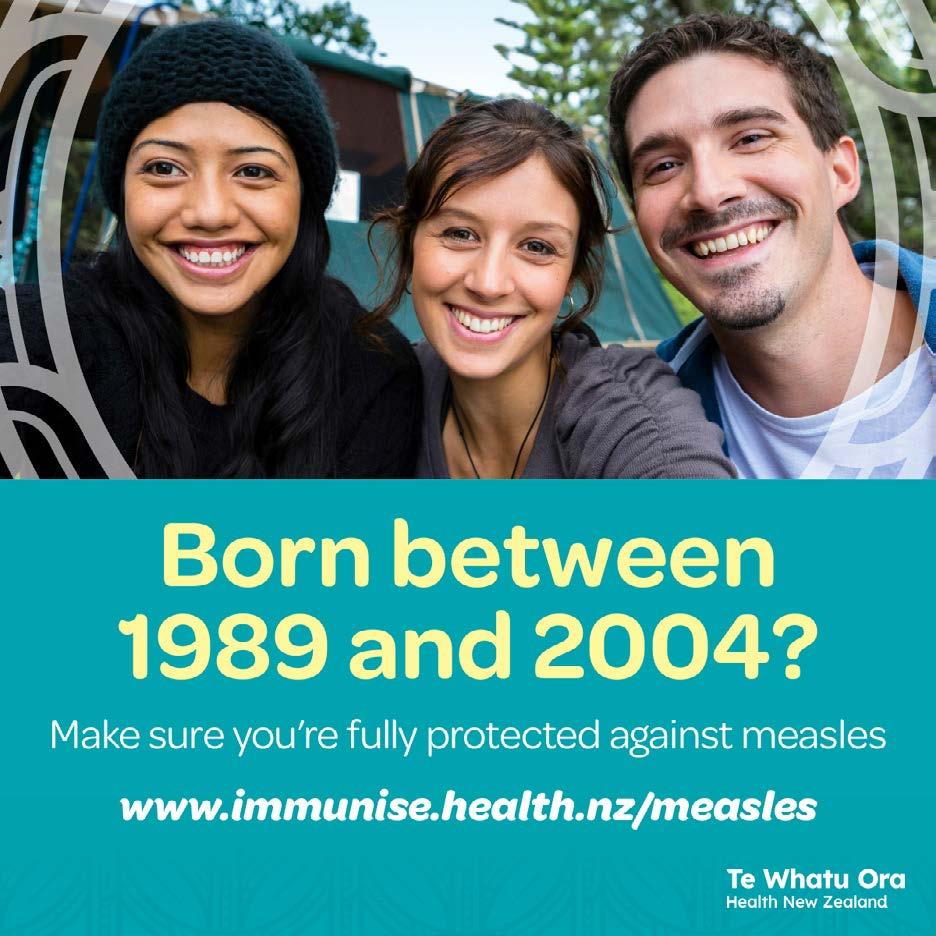
The door wasn’t lockable, but the ACNM arranged a privacy window and a note for the door to make people aware that expressing could be happening in there.
I experienced a few challenges within the month that I was expressing at work. The room didn’t have an easily accessible power supply and I found it difficult to express from both breasts, with my single pump as well as eat my dinner in my half an hour dinner break.
I was working at reception or in an acute illness location which meant when I was away from my desk it impacted the public or clinical staff, so I didn’t take my 15-minute breaks. I figured I wouldn’t have had time to express in that

timeframe anyway. I also had the question of where to wash my expressing equipment and felt uncomfortable about it so took it home unwashed.
Working night shifts I found it easier to store my milk in the fridge where I was working due to locked doors and the chance of forgetting the milk when I went home. There was one occasion where my breastmilk and bottle were discarded by staff that same day - I didn’t label it and they assumed it was old due to there being no infants at the hospital at the time.
After a month, I stopped expressing at work and my supply reduced. Looking back now I had a lack of confidence after returning from parental leave. I could have asked some simple questions and made some changes. I think if my baby was younger, I would have persevered or spoken to my manager, but at the time I wasn’t worried about switching to formula due to my baby’s age. My advice would be to invest in a double pump if you’re expressing at work and give your workplace a chance to make your journey easier.”
24 31 July 2023
Pānui – Notices

Something For You
Something for You is the Te Whatu Ora - Waitaha Canterbury employee benefits programme. The deals offered are from the New Zealand business community to say thank you for all that you do Please see below offers for you.
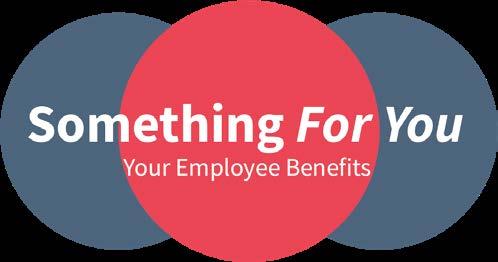
Fitness Passport - Your Fitness Passport vote is here

The Fitness Passport survey launched last week and thanks to those who have voted so far. For those who haven’t yet, you have until 4 August and you can do so by following the link https://www. surveymonkey.com/r/ TeWhatuOraFP or scanning the QR code
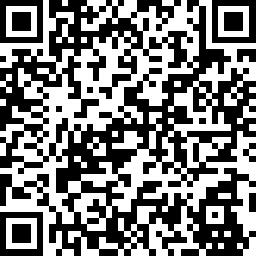
Te Whatu Ora Waitaha and Te Tai o Poutini have the opportunity to have a Fitness Passport programme designed exclusively for us. This survey will allow you to nominate your favourite gyms and pools for inclusion in the programme and tells us how many employees are interested in membership. Don't miss this chance to have your say!
OPSM – Riccarton, Christchurch City, The Palms, Papanui, Merivale. Hornby and Eastgate
Get 15 percent off all prescription eyewear at OPSM. See more information including promotion code here. This offer is valid through to December 2023.
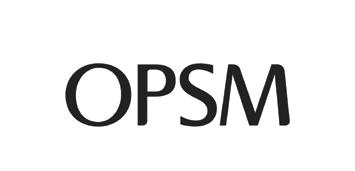
Southern Cross - Health insurance

Reduced premiums for you and your immediate family, see more information here
Gavin Lowe Energy - 48 Battersea Street, Sydenham
Discounts on heat pump installation and servicing. Show your staff ID to redeem, see more information and vouchers here

25 31 July 2023
CHIC newsletter
The latest issue of the Community Health Information Centre (CHIC) newsletter is out now.
The monthly newsletter is produced by CHIC at Community and Public Health (C&PH). The newsletter highlights new and revised free resources available from your local CHIC office. See it on the C&PH website here
QUIZ ANSWERS – Name that song (1970s edition)
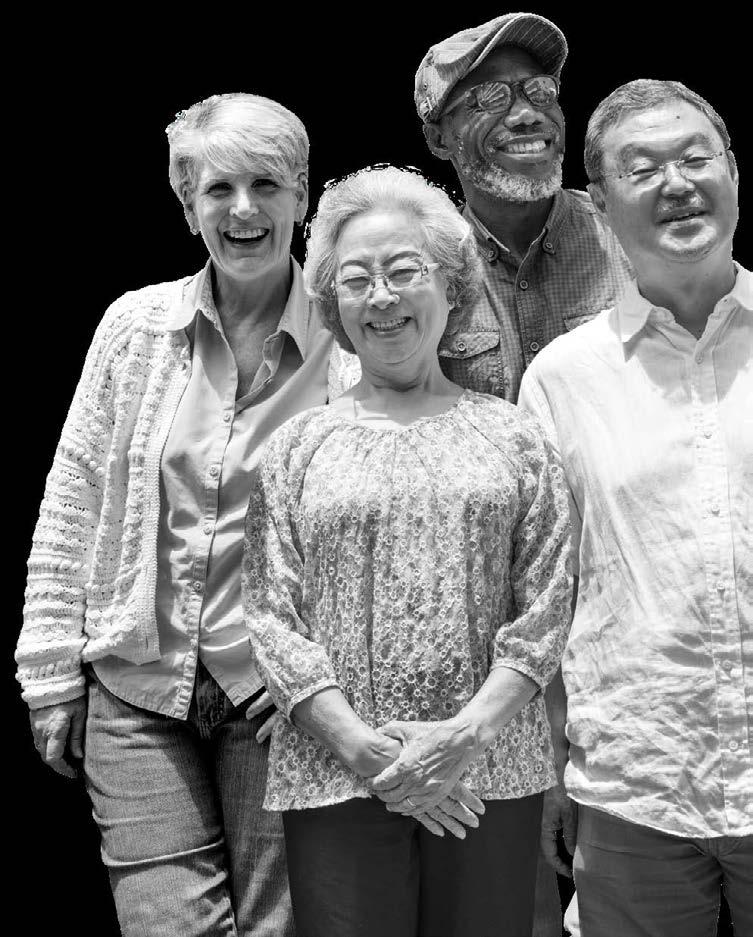

26 31 July 2023
1. b. American Pie by Don McLean
2. a. Dreams by Fleetwood Mac
3. b. Fat Bottomed Girls by Queen
4. c. Free Bird by Lynyrd Skynyrd
5. a. Goodbye Yellow Brick Road by Elton John
6. b. I Do, I Do, I Do, I Do, I Do by ABBA
7. d. Life on Mars? By David Bowie
8. c. How Deep is Your Love? By The Bee Gees
9. d. Bridge Over Troubled Water by Simon and Garfunkel
10. a. Hotel California by The Eagles
Tuesday 15 August, 10.30am-12pm MainPower Stadium, Rangiora Living well & ageing well research talks Join us to learn more about your brain health
Registrations essential visit www.healthprecinct.org.nz/events FREE PUBLIC EVENT
Presented by:
Connect me to the traditions and culture of my homeland
PACIFIC LANGUAGE WEEKS 23 20




27 31 July 2023
‘Ātuitui’ia au ki te au peu o tōku kāinga Ipukarea
HealthInfo now has a QR code
healthinfo.org.nz
Help your patients understand their health conditions
• HealthInfo has high quality information, including information specific to Waitaha Canterbury.
• HealthInfo is continually being updated so check back regularly to see what’s new.

• If you use HealthPathways, check the “For patients” link at the bottom of each pathway to see what’s available on HealthInfo, including patient leaflets you can print.
Give out a Healthinfo card
On a HealthInfo card write a key word your patient can use as a search term to quickly find the right information – such as “Diabetes” or “Heart failure”.
To order HealthInfo cards, posters or flyers, go to: www.cph.co.nz/resources
28 31 July 2023
Emergency help A-Z health topics Look up your medication SEARCH
healthinfo.org.nz Diabetes























































